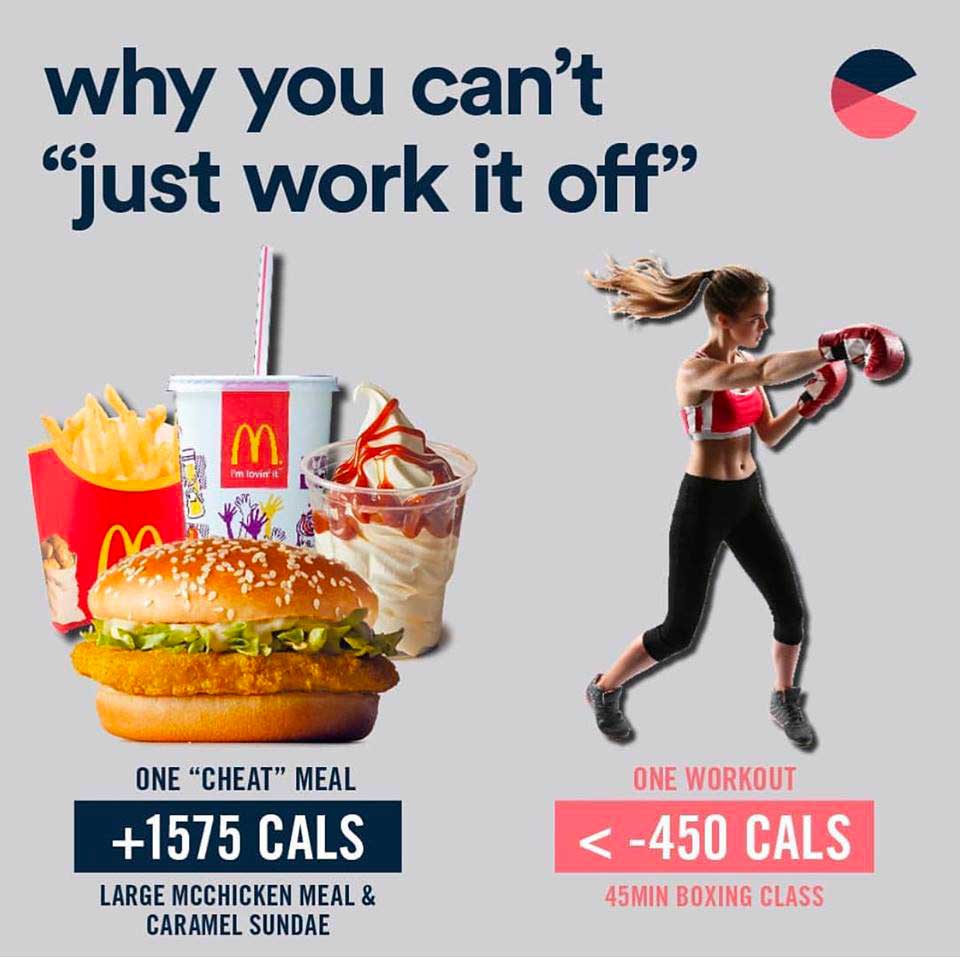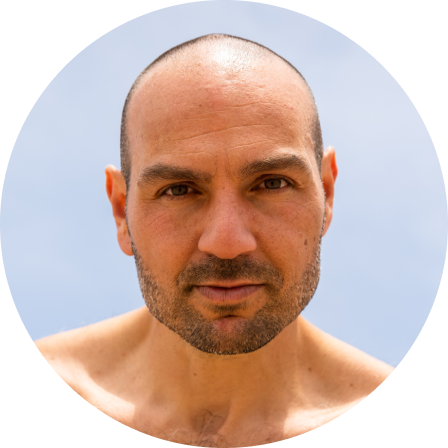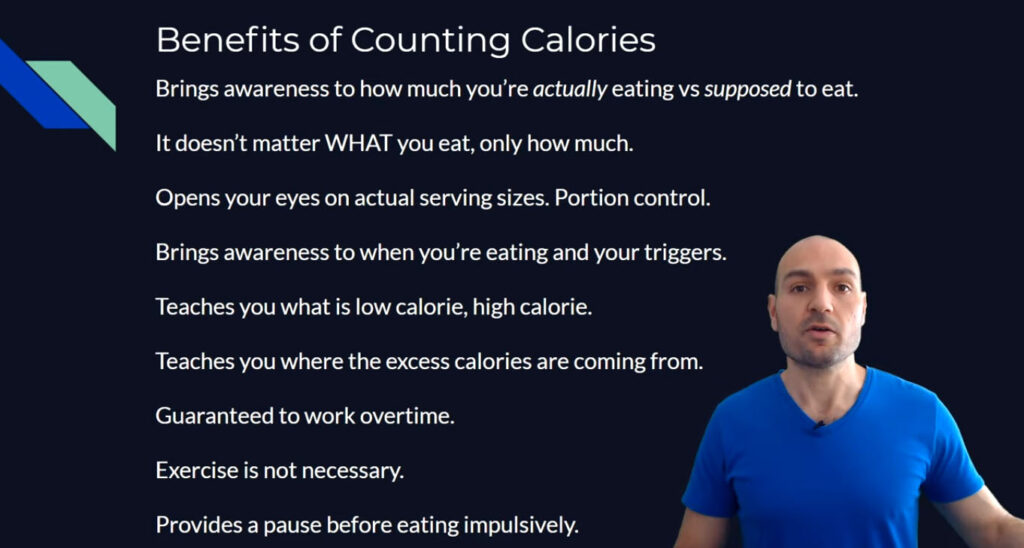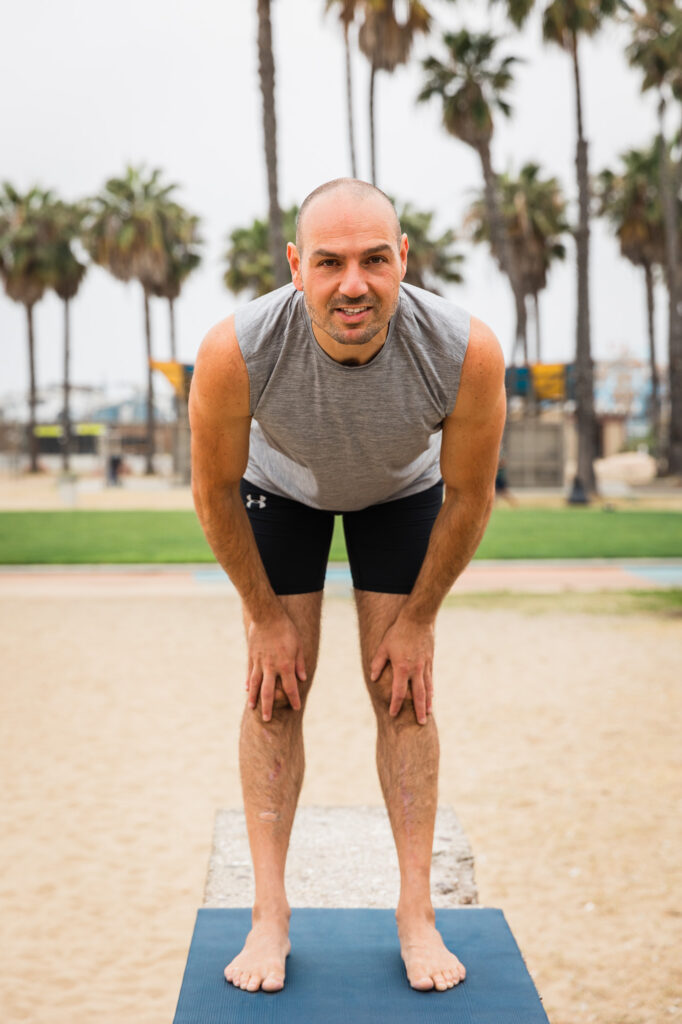Weight Loss and Nutrition Series

Part 1: How Weight Loss Works: Calories, Diets, Exercise, Physique and More
There is so much misinformation and outright BAD information in regards to weight loss, fat loss, diets, calories, exercise and so forth that I am really happy to make this video talking the reality to dispel myths and set you on the right path! If you don’t want to watch the video, the transcript is below as well.
What’s up everybody, I’m excited to share with you a whole new series and this one is gonna be on nutrition. This is a long time coming so I’m really happy to be doing this. This first video is all about how weight loss and fat loss works and I’m excited to be doing this because it’s a topic with a lot of misinformation and a lot of people need help because let’s face it, everybody is fat all around us. Not just with adults but also with kids, so this is a huge issue.
Calories, Calories, Calories
The major thing you gotta keep in mind is that calories are the number one predictor of whether you’re going to be gaining weight or losing weight. Basically, your body burns a certain amount of calories per day. It depends on how much you’re burning based on your gender, weight, age, height and activity level. If you eat more calories than you need per day, you’re going to gain weight and vice versa.
Some people might say that doesn’t work because I’m old or my metabolism is slow. Well, if you keep making those excuses the reality is that you just need to eat less. It’s very possible that you’re not calculating things accurately. Like, for example, the calculators themselves that tell you how many calories you’re burning per day, are estimates. They’re just a guideline. If you’re eating slightly less and still not losing weight and you’re accurately weighing and measuring everything then it’s likely that your metabolic rate is even lower than that and you need to eat less. So, that is a big deal.
It’s very possible that you’re not calculating things accurately. Like, for example, the calculators themselves that tell you how many calories you’re burning per day, are estimates. They’re just a guideline. If you’re eating slightly less and still not losing weight and you’re accurately weighing and measuring everything then it’s likely that your metabolic rate is even lower than that and you need to eat less. So, that is a big deal.
Patience
Also, a lot of people are not very patient. A lot of the weight you gained happened very slowly over months and years until you saw an old photo of yourself and realized how much you’ve changed. You’re not going to lose that weight in a few weeks. It’s going to take time. You’re going to lose some weight in the beginning and it might take months if you’ve been struggling with this for a long time and you have a lot to lose. You’re going to have to trust the process, if you are losing some weight and stick to it.
Diets
There’s so many different kinds of diets, weight loss diets, lifestyle diets. There’s a bunch of different diets listed here and a lot of times they work because they’re restricting certain foods that you can eat or maybe the time when you can eat and that in turn is creating some sort of caloric deficit and that is causing you to lose some weight. What’s important here isn’t the diet itself. It’s which diet is suitable for your lifestyle. One could work great for one person and a different one can work great for another one.
You cannot out-exercise a bad diet!
One of the first things people think of when they wanna lose weight is that they need to exercise. They say, “I gotta go to the gym” or, “I gotta start working out.” Working out is great and highly recommended but the reality is you can’t out-exercise a bad diet. You need to get a diet in check otherwise you’re gonna keep spinning your wheels.
Exercise is great. Work on your abs. Work on getting a strong 6-pack but it’s actually not going to show itself until you actually lose the fat that covers over it and the only way to do that is by getting your diet in check and eating less calories than you need.
Like this infographic below shows, let’s say you do an intense kickboxing class and burn 500 calories in that hour. But what if you have one cheat meal of 1,500 calories afterwards because you feel like you deserve it. The reality is that one cheat meal easily negated all the work you did that day.
This is why it’s important that you focus on the diet. If you go crazy with the cardio everyday nonstop everyday, and don’t change a thing with your diet, sure, you’re going to lose weight. But what ends up happening is that cardio makes you hungrier overtime because your metabolic rate not just for that day but the day after and you end up craving more food. Eventually there’s going to be a rebound effect. In the beginning you might say you don’t feel hungry cause you worked out and you feel good but eventually there sill be a rebound effect and you need to be aware of this.
I have a detailed blog post on the topic of abs being made in the gym and revealed in the kitchen here.
You should always do strength training
In regard to exercise, everybody should be doing strength training because if you are losing weight, that’s great, but it’s also possible you’re losing muscle if you’re not strength training at the same time.

You want a high quality weight loss which ensures that you’re losing mostly fat and minimizing the muscle lost. If you’re losing weight and not working out, you’re also going to be losing weight in the form of muscle and that’s not good because your physique is going to look worse. You’re going to lose a lot of your muscle definition and you don’t actually want that. It looks good to lose bodyfat but you want to keep the muscle you have and you do that by doing intense strength training. It doesn’t have to take a lot of time, and there are many ways to go about this and it should be done. So that is one huge point that should never be neglected.
How little should you eat?
The more severe your deficit, the more extreme you go, the less sustainable it will be and eventually it will have a bad rebound effect so you have to find some sort of balance where you’re eating slightly less each day to make this sustainable. Because you didn’t gain all that weight in one day, you gained it over a long time and you want to take your time losing it so you can stick to whatever you’re doing that’s working for you.
Now, I tackled a lot of different nuances in this whole topic of weight loss and I would like you to know how you liked this article. Let me know what questions you have. Let me know what you would like me to cover and maybe I’ll cover exactly that next time. Now, I’d love to see what you have to say as well and I’ll see you in the next video.
Part 2: How To Lose Weight Without Exercise Or Dieting, Guaranteed
In this video you will learn how to lose weight in a guaranteed fashion by using an app such as MyFitnessPal that will help ensure you’re eating less calories than you’re actually burning. I go over the pros/benefits and cons/downsides to this guaranteed weight loss method and then give a bunch of tips on how to help you succeed with it.
Do you want to know how to lose weight in a guaranteed manner so that you don’t waste your time trying diets that might work or might not work? Well, you’ve come to the right place.
Calories in versus Calories Out (CICO)
The first concept you need to understand is very simple: Calories in versus Calories Out
Your body burns a certain number of calories everyday to live, survive and do all the processes it needs to do. This is dependent on your age, weight, height, gender and activity level and there are calculators that will estimate how many calories you burn on average per day. And the food you eat has energy in the form of calories. So you’re eating throughout the day and if you’re eating less calories than your body needs, then you’re going to lose weight. If you’re eating more calories than your body needs, you’re going to gain weight.

Logging your food is the answer (Counting Calories)
Now we just take that concept and count our calories. Get the app called MyFitnessPal and it has a database of 10’s of thousands of foods. And even easier, if the food you’re eating is in a package, you just scan the barcode with your phone camera and put the number of servings you ate and it counts how many calories you’ve ate. People used to do this with pen and paper but now there’s an app on your phone that does it for you, and you use your phone throughout the day anyway.
Benefits of Counting Calories
The benefits are huge. The biggest one is that you could eat anything you want. You could have your ice cream, your cereal, etc, as long as you stay under a certain number of calories. Another thing that’s very important; this is a lesson that stays with you forever, is that it’s going to teach you how many calories you’re actually supposed to eat and how many you’re actually eating. This is HUGE. You might not realize that the breakfast you’re eating is a massive amount of calories until you actually count them. You have to go through this process to see where your excess calories are coming from. It’ll make you more aware on so many things. For example, you may not realize how frequently you’re snacking until you do this.
It’ll make you super aware of when you’re eating, why you’re eating, what’s causing the impulsiveness, what are the triggers. You’re going to start to notice patterns you never noticed before.
I wrote exercise is not necessary because whenever people want to lose weight, the first thing they think is “I gotta go to the gym.” No, really, the first thing you gotta do is control your diet. Control how much you’re eating. And that’s what’s going to help you to lose weight. Everyone should be exercising regularly all the time, whether they’re trying to lose weight or gain weight or whatever. It doesn’t matter. That part should just be a constant presence in your life. But the diet part is what you need to get in check, okay?
Negative side of Counting Calories
Let’s face it, it can be a little bit stressful to have to log everything that goes in your mouth. It’s a bit tedious, it could be cumbersome, however, it does get better with time. The first week might be annoying as hell, but when you start to see the results and you start to understand how much you’re actually eating, this is an important lesson that outweighs the negatives.
And I’m gonna be frank with you, the people who don’t want to count calories or say it doesn’t work for me without even trying, often have the biggest issues. Because they’re not facing reality. They don’t want to face the reality that they’re overeating and they just stop doing it. So you really need to be honest with yourself. If you actually want to lose weight, you’ve gotta like actually want to be aware of where your excess calories are coming from and it’s going to take work to stop it. And honestly we have the technology that makes it super easy, so enough with the excuses!
The other drawback is, if you’re making food at home, you need a food scale, so that you know if you’re eating 6 ounces of chicken or 12 ounces of chicken. It’s hard to gauge meat, nuts, cheeses most especially if you’ve never weighed them before. And the other drawback is if you’re eating out or eating out at a friends place, it’s hard to know how many calories are in that food if it’s not in the database. However, I would always recommend you round up to be on the safe side.
How much of a deficit should you eat at?
The general recommendation is that you should eat 500 calories less than you need per day. Now if you’re a petite woman, 500 calories might actually be too extreme. Maybe 300 calories less, something like that. Because you don’t need as much to begin with, so in terms of percentage, maybe you should be eating about 20% less per day.
If you’re eating 500 calories less per day, you’re going to lose about 1 pound of fat per week. So keep that in mind. It’s a nice, sustainable number for most people.
How to ensure you’re on the right path?
Now, to ensure that you’re on the right path, you want to weigh yourself every week. And you want to do it under the same circumstances. So for me personally, I only weigh myself if it’s morning time, I’ve just pooped but I haven’t ate anything. If those 3 conditions exist, only then will I weigh myself. Because if I weigh myself in the evening, after a big dinner, the weight is going to look very different than all the previous times I’ve weighed myself. It’s not going to be meaningful, comparable data.
And the other thing is in the app you could log the weight and take a photo of yourself at the same time which I recommend as well because it’s great to have the before and after photos.
Weight Loss is Non-Linear
Another thing you gotta keep in mind is that your weight is not gonna drop off a cliff. In the beginning it’s going to drop off fast but that’s mostly going to be water weight. Don’t expect an accelerated rate of weight loss in the long term. You’re going to plateau and then sometimes come back up before you go down. Sometimes you have to go 2 steps forward, 1 step back. Expect that the weight is not going to go down in a straight line and you’re not going to give up: You’re going to stick to it because this is a numbers game.
And that’s another thing, you don’t have to weigh yourself everyday. Maybe once a week, twice a week, but you don’t need to obsess over it because you’re going to lose weight slowly overtime and it’s all about the long run.
Tips to make calorie counting easier
- Even before you eat something, log it. Don’t say I’ll do it later because you’re going to forget. It’s going to be shocking how easy it is to forget what you’ve ate. Extremely mind blowing, actually. These things add up so fast it’s just uncanny. I like to log things while I’m heating things over the stove top or in the microwave.
- If you’re going to have a cheat day, it’s really important that you keep logging your food. You have to be honest with yourself. Don’t feel guilty. Don’t feel ashamed because it’s not really important that you’re going over your calories on one day. What’s important is that you are going to be in a deficit over that week or over that month. It’s not really important that you are under your calories every single day. Some days you’re going to be over and some days you’re going to be under. As long as the days you’re under are outweighing the ones where you’re over, you’re on the right path. So don’t stop doing it just because you went over one day. Keep at it. That’s one of those big things that we gotta psychologically be honest with ourselves.
- Another cool thing is if you have a measuring cup, learn what 1 cup or 2 cups is like in your favorite bowls that you use frequently so that if you just pour something in your bowl, you know if it’s at a certain level that’s 1 cup or 2 cups. So you don’t have to meticulously use a measuring cup each time.
- Another thing that makes it way easier is if you do intermittent fasting. So for me personally, I don’t eat breakfast, so I don’t need to log 3 meals a day. All of a sudden I don’t need to log 3 meals a day but just 2 meals a day.
- If you’re the kind of person that eats a ton of snacks all throughout the day, maybe you should reduce the frequency of how often you’re snacking because if you do that then you don’t have to log as much, as often.
- If you are not sure how much food you’re actually eating, be on the safe side and round up.
- If you’re logging an exercise, the MyFitnessPal app actually overestimates how many calories you’re burning so round down on that so that way you’ll ensure you’re still on the right path.
Now I want to read your comments. What do you think of calorie counting? Have you tried this? Have you succeeded? have you failed? Are you going to try it again? Is this your first time hearing about it? Please let me know what you think and if you’re going to do it, try it and what your results were in the past. I’d love to hear and thanks for reading. Much success to you!
Bonus Part 3: Body Image Perceptions, Body-Fat-% vs Strength, Online vs Reality, Fat vs Ripped
The above video has received, and continues to receive, the most engagement from the YouTube audience. It all started when a user asked why I’m not concerned about getting leaner… so here’s a video answer. It’s a complex issue I can talk about forever, so here’s just 7 minutes. I recommend you check it out as it ties into the same topic of nutrition and weight loss but more-so about finding comfort in your own body image.

Let’s Connect
The best way to stay up to date with the latest content and videos is to sign up for my newsletter!











